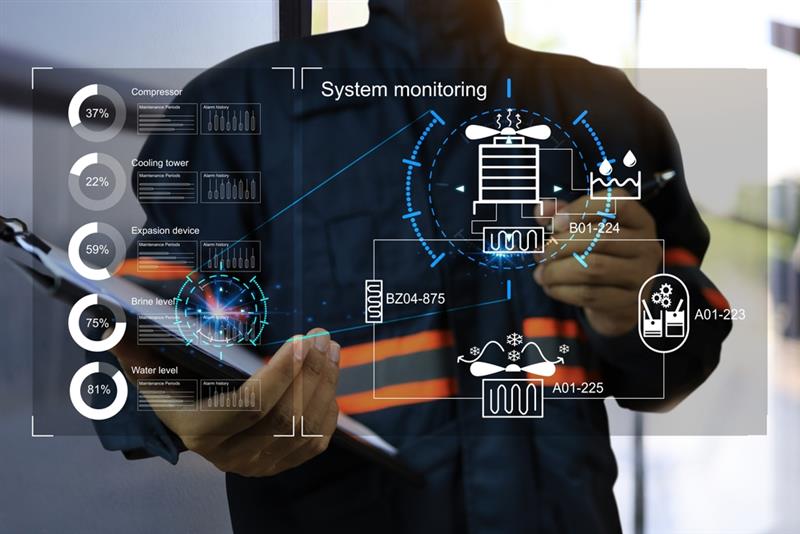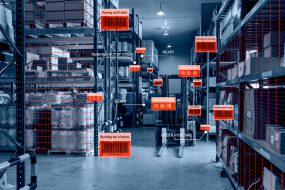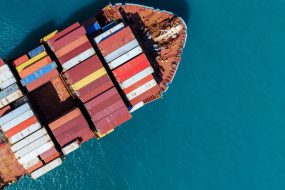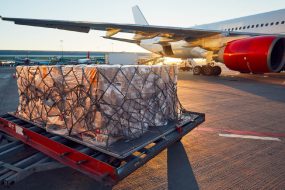For decades, oil and gas supply chains have focused on scale, speed, and keeping costs down. But now, there’s a new factor driving change: sustainability.
From investors and regulators to local communities, everyone’s expecting the industry to do more to protect the planet. That’s why sustainable logistics — integrating eco-friendly thinking into every step of the supply chain — is becoming one of the most talked-about shifts in the sector.
It’s not just about saving the planet. Going green also helps companies save money, reduce waste, and run more efficiently. Win-win.
Related Reading: Logistical challenges in oil and gas – and how to solve them
What does sustainable logistics actually mean?
Put simply, sustainable logistics is about rethinking how oil and gas products move — from drilling sites to refineries to end users — in a way that cuts emissions and reduces impact.
That could mean:
- Rethinking transport routes to use less fuel.
- Switching to electric or hybrid vehicles for shorter deliveries.
- Powering warehouses with renewable energy like solar or wind.
- Introducing data-led decision-making to avoid inefficiencies.
It’s all about building a supply chain that’s smarter, cleaner, and ready for the future.
Why it matters more than ever
The oil and gas industry has long had one of the largest environmental footprints. But with global regulations tightening and sustainability targets growing stricter, change is no longer optional.
By embracing green logistics, companies can:
- Boost their reputation with environmentally conscious stakeholders.
- Stay compliant with evolving regulations.
- Cut costs by running operations more efficiently.
- Reduce emissions and help meet global climate goals.
It’s about doing what’s right — but also what’s smart.
Related Reading: Unpacking the secrets: Logistics’ pivotal role in oil and gas success
Where sustainability makes the biggest difference
Rethinking transport and emissions
Transport is one of the biggest contributors to the sector’s carbon footprint. The good news? New tools and smarter planning are helping to tackle that.
With route optimisation software, companies can identify the most efficient paths and avoid unnecessary journeys. Fleet electrification and the use of alternative fuels like biofuels or LNG are also gaining traction, cutting emissions without sacrificing performance.
Smarter waste management
Waste is another challenge — from packaging to used oil to obsolete equipment. The shift towards recycling and circular practices is growing fast. Many logistics partners are now offering end-to-end waste collection and recycling services, helping ensure every by-product is managed responsibly.
Cleaner energy and alternative fuels
Sustainability isn’t just about transport. It’s also about energy efficiency. Many logistics providers are upgrading warehouses and hubs with green building tech — think energy-efficient lighting, smart HVAC systems, and renewable power sources.
The move towards alternative fuels like hydrogen and LNG is also helping the industry shrink its carbon footprint while improving long-term energy resilience.
Related Reading: Smarter logistics for remote energy sites


The real benefits: it’s not just about being green
Switching to sustainable logistics doesn’t just tick an ESG box — it brings real business value.
- Lower operating costs: Fewer empty trips, less wasted fuel, smarter resource use.
- Better brand perception: Companies that go green stand out as forward-thinking and trustworthy.
- Greater resilience: Sustainable systems are often more flexible, helping businesses adapt to shocks like fuel shortages or supply disruptions.
The message is clear: sustainability isn’t a cost — it’s an investment in a stronger, more future-ready supply chain.
How logistics providers are leading the charge
The shift towards sustainability isn’t happening in isolation. Logistics partners are stepping up, developing new tools and services designed to help oil and gas companies meet their environmental goals.
- Advanced analytics help track emissions and identify hotspots.
- Collaborative partnerships bring together operators, suppliers, and logistics firms to co-create solutions.
- Training programmes ensure staff understand and adopt greener practices in their daily work.
The keyword here is collaboration — because sustainable change only happens when every player in the supply chain works together.
Challenges (and why they’re worth tackling)
Yes, going green takes effort. It means investing in new technology, updating processes, and sometimes challenging “the way we’ve always done things.” But the long-term payoffs — efficiency, compliance, and reputation — make it worth it.
As awareness grows and technologies mature, these barriers will shrink. The companies that start now will be the ones leading the industry’s transformation in the years to come.
Related Reading: From warehouse to delivery: Automation’s revolutionary reshaping of logistics
Key takeaway
Sustainable logistics isn’t just another industry buzzword — it’s the future of the oil and gas supply chain. By rethinking how materials move, using cleaner fuels, and partnering with tech-driven logistics providers, companies can reduce their impact while becoming leaner, faster, and more competitive.
The shift won’t happen overnight, but it’s already underway. And those who act now won’t just be following the trend — they’ll be defining it.
Sustainability isn’t a trend — it’s the new standard. Reach out to us and start your logistics transformation with Aramex today.




